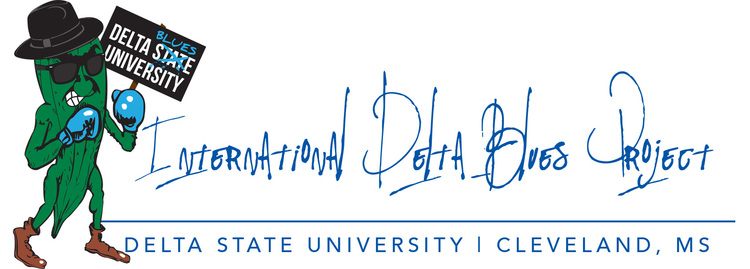I want to tell you a story from 'way back:
Truck on down and gig me, jack,
In eighteen hundred and sixty-five,
A hep cat started some jive,
He said, "Come on, gates, and jump with me
At the Juneteenth Jamboree."
The rhythm was swinging at the picnic ground,
Fried chicken floating all around;
Everybody there was full of glee,
Trumpets blaring in the air,
Mellow barbecue everywhere,
Clarinets moaning in the hall;
All the gates was having a ball,
They didn't know how to cut no rug,
But all the cats had a gal and jug,
Everybody happy as they could be,
At the Juneteenth Jamboree!
The 4th of July holidays are upon us, which provides a good occasion to think about blues and celebration of political holidays. Blues artists are often booked at municipal events celebrating the 4th, but the topic of Independence Day doesn’t seem to figure too much in blues lyrics. This may have something to do with the fact that most blues are ostensibly about romantic relationships. But it’s also the case that celebrating the Declaration of Independence from United Kingdom rule in 1776 might not resonate too much with people whose descendants were enslaved at the time.
For many African Americans “independence day” is known as Juneteenth, and more precisely June 19th, 1865, when Union soldiers announced to African Americans in Galveston, Texas that the Civil War was over, and that they were free. The Emancipation Proclamation, issued by President Abraham Lincoln, had theoretically been in effect since January 1, 1863, but that was little comfort to those still under bondage.
This photo, taken in Austin in 1900, is from a Smithsonian magazine article on early celebrations of Juneteenth. http://www.smithsonianmag.com/smithsonian-institution/juneteenth-a-new-birth-of-freedom-9572263/?no-ist
This photo from an early Houston celebration is featured in this article - http://www.ultimatehistoryproject.com/juneteenth-a-day-of-jubilation.html
Early celebrations of Juneteenth were multi-faceted, including education, encouragement of self-improvement, fun and games, barbecuing, and, quite simply, a celebration of the ability to freely gather, a basic right deprived during the slavery era. Churches were often the site of Juneteenth celebrations, but eventually many sites were purchased or acquired that were dedicated to the holiday.
Recognition from local officials varied—in many areas the holiday was ignored, while in others it was a part of broader celebrations. For instance, between 1936 and 1951 the Texas State Fair included a Juneteenth celebration, with the initial one drawing between 150,000 and 200,000 celebrants for events including a “cabaret show” featuring top entertainers.
The Civil Rights movement, with its emphasis on independence and self-pride, rejuvenated Juneteenth Celebrations, and today they’re regularly celebrated by local municipalities around the country, sometimes officially, as in Texas, where it became a state holiday in 1980.
Which takes us back to the blues. It’s certainly not the case that blues is essential to Juneteenth—the celebration predates the emergence of the music—but for many decades blues has been central to Juneteenth Celebrations, which nowadays often take place on the Saturday nearest to the 19th. The 1940 song above by Arkansas native Louis Jordan, the most popular blues performer during that decade, is one of the few blues songs that address Juneteenth, but its celebration of downhome pleasures suggest that blues was long welcome at the get-togethers.
Unsurprisingly, Juneteenth events are particularly popular in Texas, with blues-themed gatherings held in many smaller locales as well as in Dallas, Austin, and Houston, where the Juneteenth Festival, established in 1977 by jazz activist Lanny Steele’s SumArts Organization, was for many years one of the largest free outdoor blues events in the country. The Houston celebrationserved as a public forum for honoring the city’s rich, if under recognized blues history, with different artists or individuals celebrated each year.
Here in Mississippi the most long-lasting blues-themed event is the Juneteenth Festival in Columbus’ historic 7th Avenue District, which has been held for more than twenty years, A Google search reveals many Juneteenth Celebrations across that country that are advertised as blues, R&B and jazz. And just like July 4, Juneteenth is likewise associated with downhome food, as hinted at in the the “Juneteenth Rhythm and Ribs” festival in Round Rock, Texas, and, in Pompano Beach, Florida, “Juneteenth: A Celebration of Emancipation and Freedom at the Blues and Sweet Potato Pie Festival.”
The pleasures celebrated in Louis Jordan's "Juneteenth Jamboree" still resonate today, as expressed in this 2014 take of the song by jazz singer Catherine Russell.
For more information on Juneteenth visithttp://www.juneteenth.com
And on Juneteenth in Texas, visit - https://tshaonline.org/handbook/online/articles/lkj01



